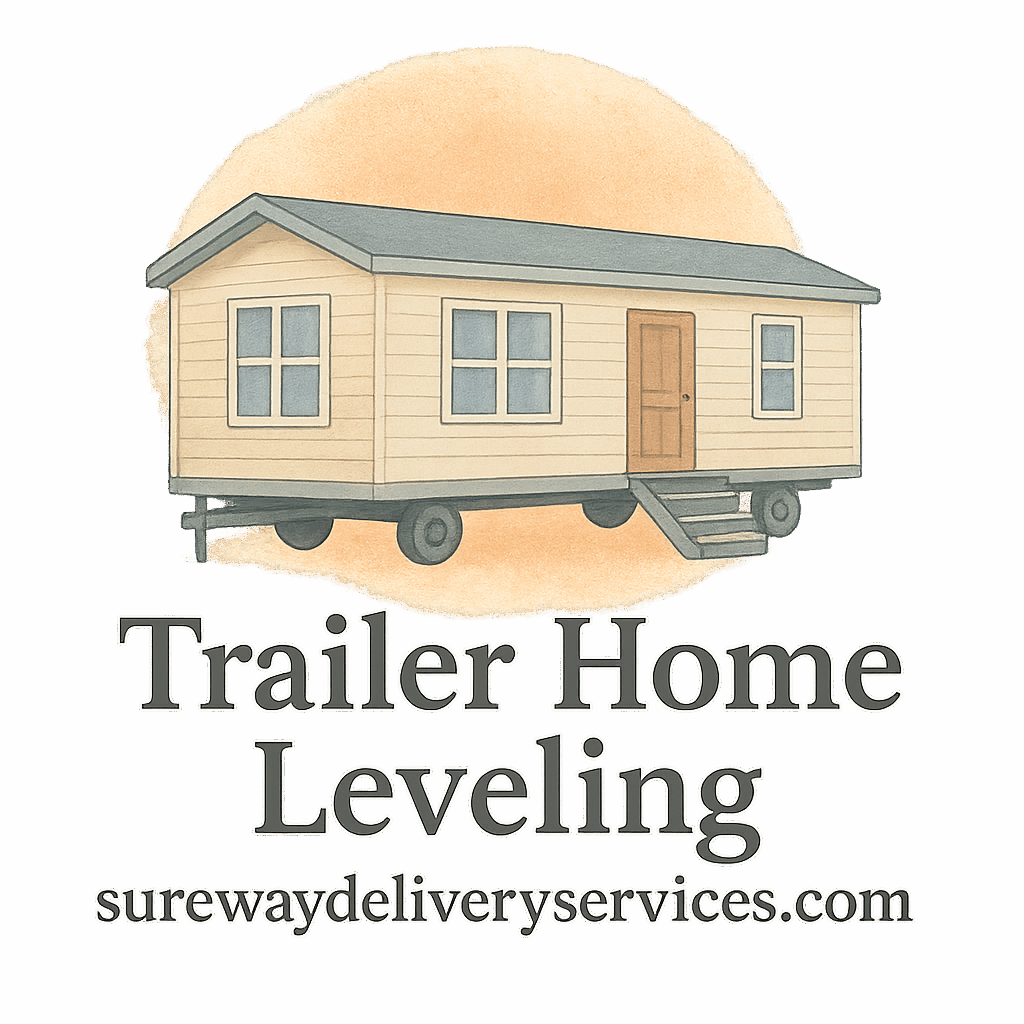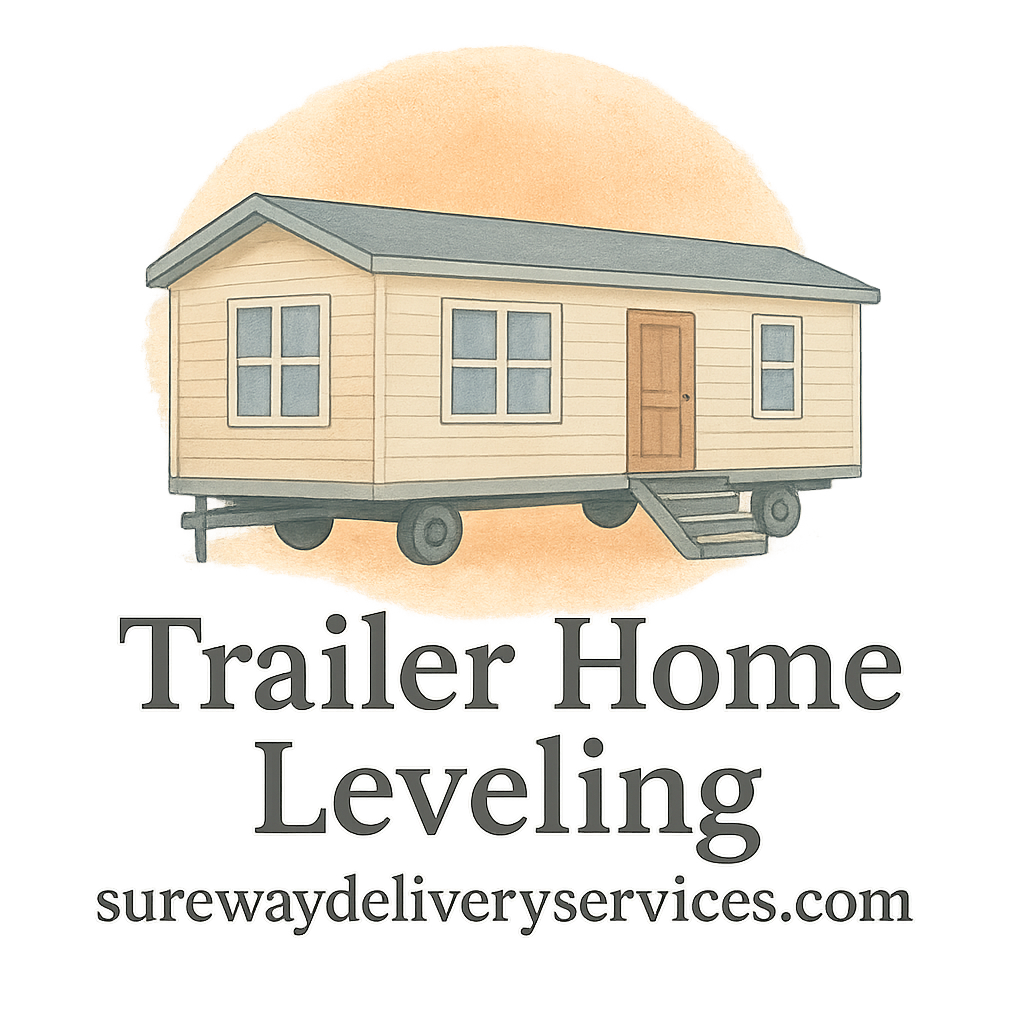Introduction
Let’s be honest—your trailer might look fine from the outside, but if it’s not level underneath, you’re sitting on a ticking time bomb. Home leveling isn’t just about looks; it’s about protecting your comfort, your investment, and most importantly—your safety.
Whether you’re new to trailer living or a seasoned pro, understanding why home leveling is crucial can save you tons of headaches (and dollars) down the road. So, let’s dive into the 7 major reasons home leveling is vital for trailer stability—plus everything else you need to know to keep your trailer solid, secure, and straight.
1. Prevent Structural Damage
How Unlevel Trailers Suffer Structurally
When your trailer is unlevel, you’re putting uneven stress on its frame and foundation. Over time, that stress can warp floors, bend walls, and cause permanent foundation damage. Not cool.
Leveling acts as a preventive measure—distributing weight evenly and keeping the structure strong.
Explore the basic trailer leveling introduction to understand why the frame matters so much.
The Role of Foundation Shifting
Soil beneath your trailer naturally settles. Without leveling, this shift pulls your trailer out of alignment—causing cracks in walls, jammed doors, and floor dips. It’s like trying to walk on a warped plank… not pleasant.
Read more about techniques and methods used to correct foundational shifts.
2. Improve Daily Comfort
Uneven Floors and Wobbly Furniture
Living in a tilted trailer? You’ll definitely feel it. Walking across the floor feels like climbing a hill, and your favorite recliner keeps sliding backward. That’s not just annoying—it’s a sign you need leveling ASAP.
Quiet Nights Without Creaking
An unlevel trailer tends to creak, groan, and even rock slightly at night. A properly leveled home sleeps silent and still—like a dream.
Check out the importance of ongoing maintenance and inspection to keep comfort levels high.
3. Extend Trailer Lifespan
Protect Your Investment
Let’s face it—trailers aren’t cheap. Regular leveling ensures that your trailer’s core components (plumbing, structure, flooring) aren’t under stress, which extends their lifespan. Think of it like taking your car in for a tune-up.
Regular Maintenance Matters
Leveling isn’t a one-and-done deal. Incorporate it into your annual checklist to make sure you’re not overlooking small problems before they become big repairs.

4. Prevent Plumbing and Electrical Issues
Pipe Slopes and Water Flow
Unlevel trailers can mess with plumbing—causing slow drainage, water pooling, or even reverse flow. Yuck.
Proper leveling ensures gravity works with you, not against you. And nobody likes mystery leaks.
Explore common trailer issues that leveling can help avoid.
Electrical Safety in Level Trailers
Wiring can be sensitive to shifts in the trailer structure. A tilted trailer might cause stress on wiring, leading to shorts, failures—or worse, fire hazards.
Don’t risk it. Routine leveling keeps your systems balanced and safe.
5. Reduce Long-Term Repair Costs
Catching Problems Early
An unlevel trailer causes ripple effects—foundation issues, cracked interiors, even roofing gaps. Catching these early through leveling checks can save you thousands later.
Avoid Overcharges from Emergency Repairs
Ever been slapped with an outrageous repair bill because something was “urgent”? Leveling helps you avoid those “emergency” surprises. Learn to spot signs of overcharge and stay ahead of the game.
Check out smart cost & budgeting tips before shelling out for major repairs.
6. Enhance Resale Value
First Impressions Count
If you’re planning to sell your trailer, nothing kills buyer interest like slanted floors or doors that won’t close.
Home Inspections Require Leveling
Buyers often bring in inspectors—and if your home isn’t level, it’ll show. Keep everything tight, aligned, and ready for top-dollar offers by following expert recommendations.
Explore real success stories from sellers who maximized value through leveling.
7. Ensure Safety for Occupants
Trip Hazards and Door Misalignments
Safety first, always. Sloped floors create trip risks. Doors that won’t shut? Big problem in emergencies.
Long-Term Safety Compliance
Many municipalities require homes—including trailers—to meet certain safety standards. Proper leveling helps you stay compliant and worry-free.
Check out the right tools to maintain a safe, level environment.
Home Leveling Basics
Understanding the Techniques and Tools
From hydraulic jacks to laser levels, the tools of the trade are essential. Learn the right methods and equipment that ensure the job’s done right.
Browse tools and service packages that meet your trailer’s specific needs.
DIY vs. Professional Services
Sure, you can do it yourself—but hiring an expert ensures precision and safety. Browse customer reviews before choosing a service.
Signs Your Trailer Needs Leveling
Common Red Flags to Watch
- Cracked drywall or flooring
- Doors/windows that stick
- Uneven furniture
- Creaking noises
These signs are like your trailer whispering, “Help me!”
When to Schedule an Inspection
If you spot multiple signs or haven’t had a leveling check in over a year, it’s time. Visit trailerhomeleveling.com/maintenance-inspection to schedule a proper inspection.
Final Thoughts
Home leveling might not be the flashiest part of trailer living—but it’s absolutely one of the most important. From protecting your investment to improving everyday comfort, the benefits of proper leveling are massive.
So don’t wait until something breaks. Stay proactive, stay level, and give your trailer the solid foundation it deserves.
Explore more on trailerhomeleveling.com for expert advice, DIY tips, service options, and smart tools to keep your home on the level—literally.
FAQs
1. How often should I check the level of my trailer?
At least once a year, or after severe weather events. Use this handy annual checklist to stay consistent.
2. Can I level my trailer myself, or should I hire a pro?
If you have the right tools and skills—go for it! But for peace of mind, check out professional trailer leveling services.
3. How much does home leveling typically cost?
It varies, but use this cost guide to plan and avoid being overcharged.
4. What tools do I need for leveling a trailer?
You’ll need jacks, a level, shims, and safety gear. Explore the full tool list for specifics.
5. What are the signs that my trailer is unlevel?
Look for sticking doors, floor slopes, or strange creaks. Read about common trailer leveling signs.
6. Does leveling improve resale value?
Absolutely! Buyers prefer stable, safe trailers. Discover tips from real trailer success stories.
7. What happens if I delay leveling my trailer?
Delays can lead to major structural issues and expensive repairs. Avoid regret—visit trailerhomeleveling.com today.


